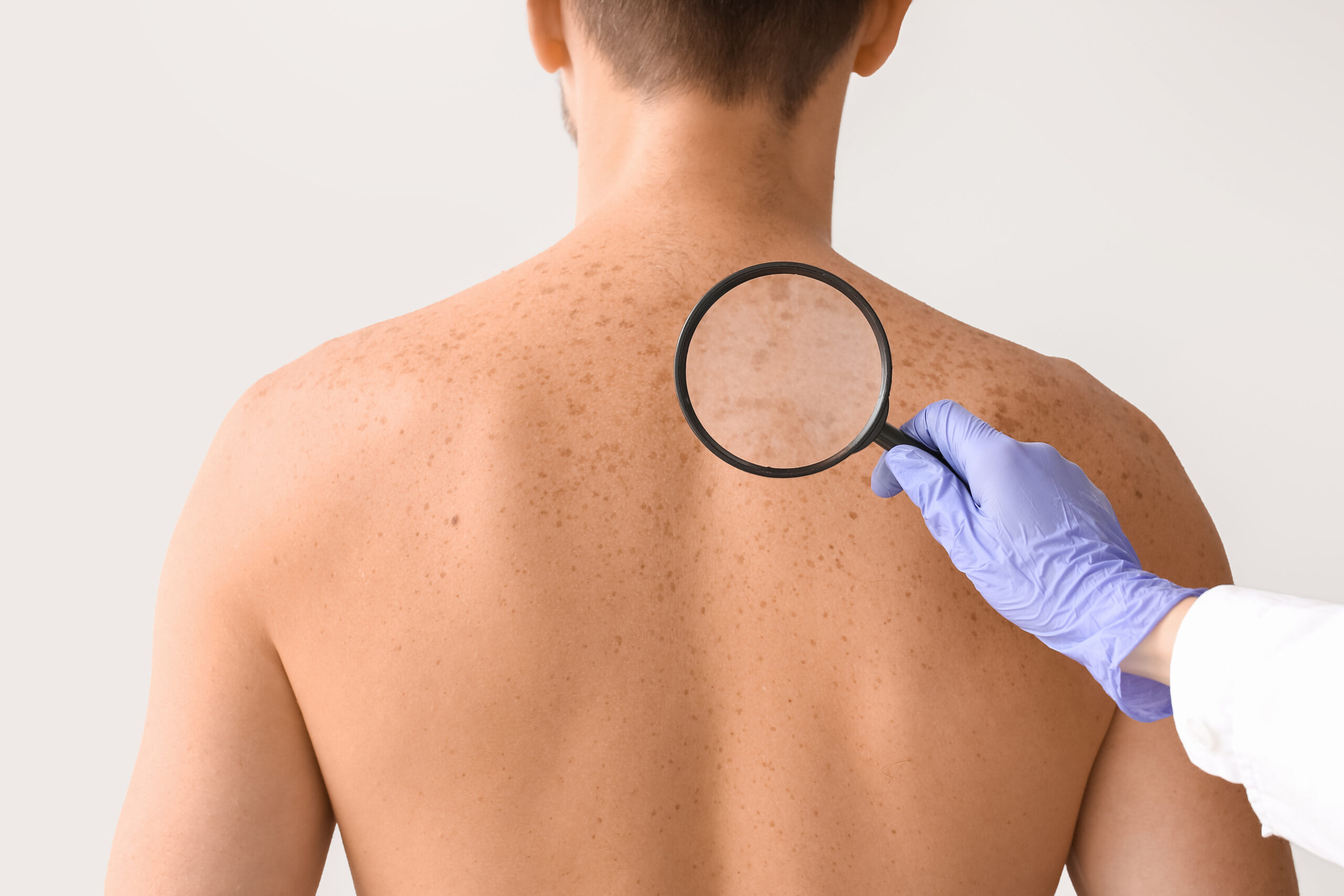Skin Cancer Diagnosis & Treatment
Skin cancer is the most common form of cancer in the UK, but with early detection and effective treatment, most cases can be cured. As a Consultant Dermatologist and Mohs Surgeon, Dr Ian Logan offers comprehensive skin cancer care — from mole checks and diagnosis to advanced surgical and non-surgical treatments.
Understanding Skin Cancer
Skin cancer occurs when abnormal skin cells grow in an uncontrolled way. The most common types are:
-
Basal Cell Carcinoma (BCC): The most common type; grows slowly and rarely spreads but can cause local damage if untreated.
-
Squamous Cell Carcinoma (SCC): Can spread if not treated promptly, especially in high-risk areas.
-
Melanoma: Less common but the most serious type. Early detection is vital as it can spread quickly.
Other rare skin cancers (such as Merkel cell carcinoma or adnexal tumours) are also seen, and Dr Logan is experienced in managing these.

The Patient Journey: Step by Step
Initial Consultation
-
A detailed history of your skin concerns and any risk factors (sun exposure, family history, previous cancers).
-
Full skin check where appropriate.
-
Dermoscopy (a magnified skin examination using a special light).
-
Digital photography may be used to track changes over time.
Diagnosis
-
If a lesion looks suspicious, a biopsy is recommended.
-
A biopsy is a minor procedure under local anaesthetic; a small sample is sent to the laboratory.
-
Results usually return within 7–14 days.
Treatment Planning
- Dr Logan explains the diagnosis clearly, showing images where useful.
- Together, you’ll discuss all suitable treatment options — medical, surgical, or light-based — depending on the cancer type, size, and location.
Your Treatment Options
-
Surgical Excision
-
Mohs Micrographic Surgery
-
Photodynamic Therapy (PDT)
-
Topical Creams
-
Radiotherapy
Recovery & Follow-Up
-
Most patients return to normal activities quickly.
-
Stitches are usually removed after 1–2 weeks.
-
Scars fade with time and are placed carefully to be as discreet as possible.
-
Regular follow-ups are scheduled to check healing and monitor for recurrence.
Early detection makes all the difference. Book your skin check today.
FAQ's
Your Title Goes Here
Your content goes here. Edit or remove this text inline or in the module Content settings. You can also style every aspect of this content in the module Design settings and even apply custom CSS to this text in the module Advanced settings.
What does a skin cancer consultation involve?
A detailed skin history, full examination, dermoscopy, and possibly photographs. If a mole looks suspicious, a biopsy may be taken.
Does a biopsy hurt?
No, the area is numbed with local anaesthetic. You may feel a brief sting when the injection is given, but the procedure itself is painless.
How is skin cancer diagnosed?
A biopsy confirms the diagnosis. The sample is analysed under a microscope by a pathologist.
How quickly will I get results?
Usually within 7–14 days, sometimes faster for urgent cases.
Will surgery leave a scar?
Yes, any surgery leaves a scar, but Dr Logan uses meticulous techniques to minimise and hide scarring where possible.
Is Mohs surgery better than standard excision?
Mohs has the highest cure rate for many non-melanoma skin cancers, particularly on the face. It also preserves as much healthy skin as possible.
Can I drive home after treatment?
Yes, most treatments are done under local anaesthetic, so you can usually drive home the same day.
Will I need regular check-ups after treatment?
es. Most patients are followed up every 3–12 months for a few years, depending on the type of cancer and individual risk factors.
